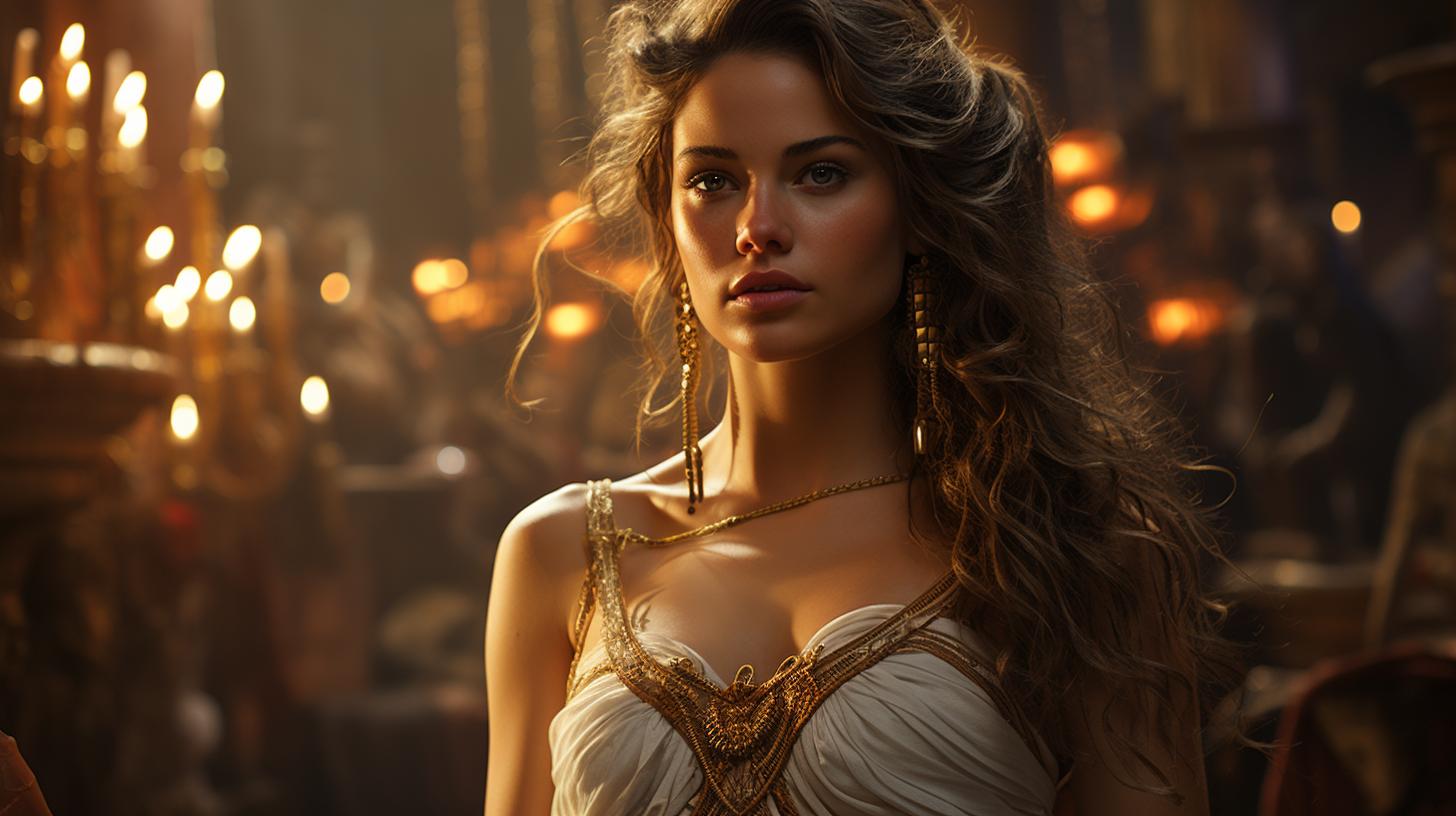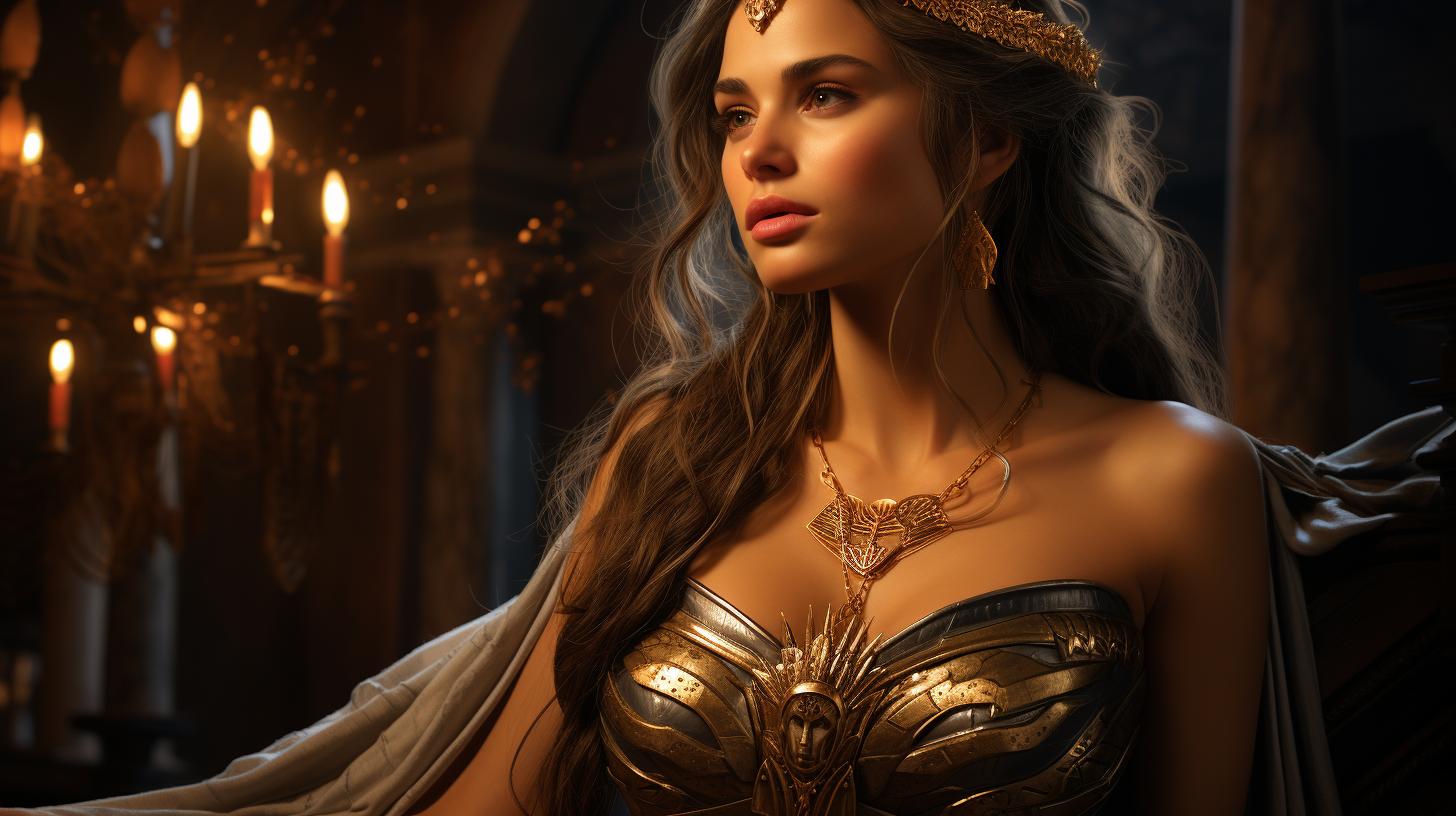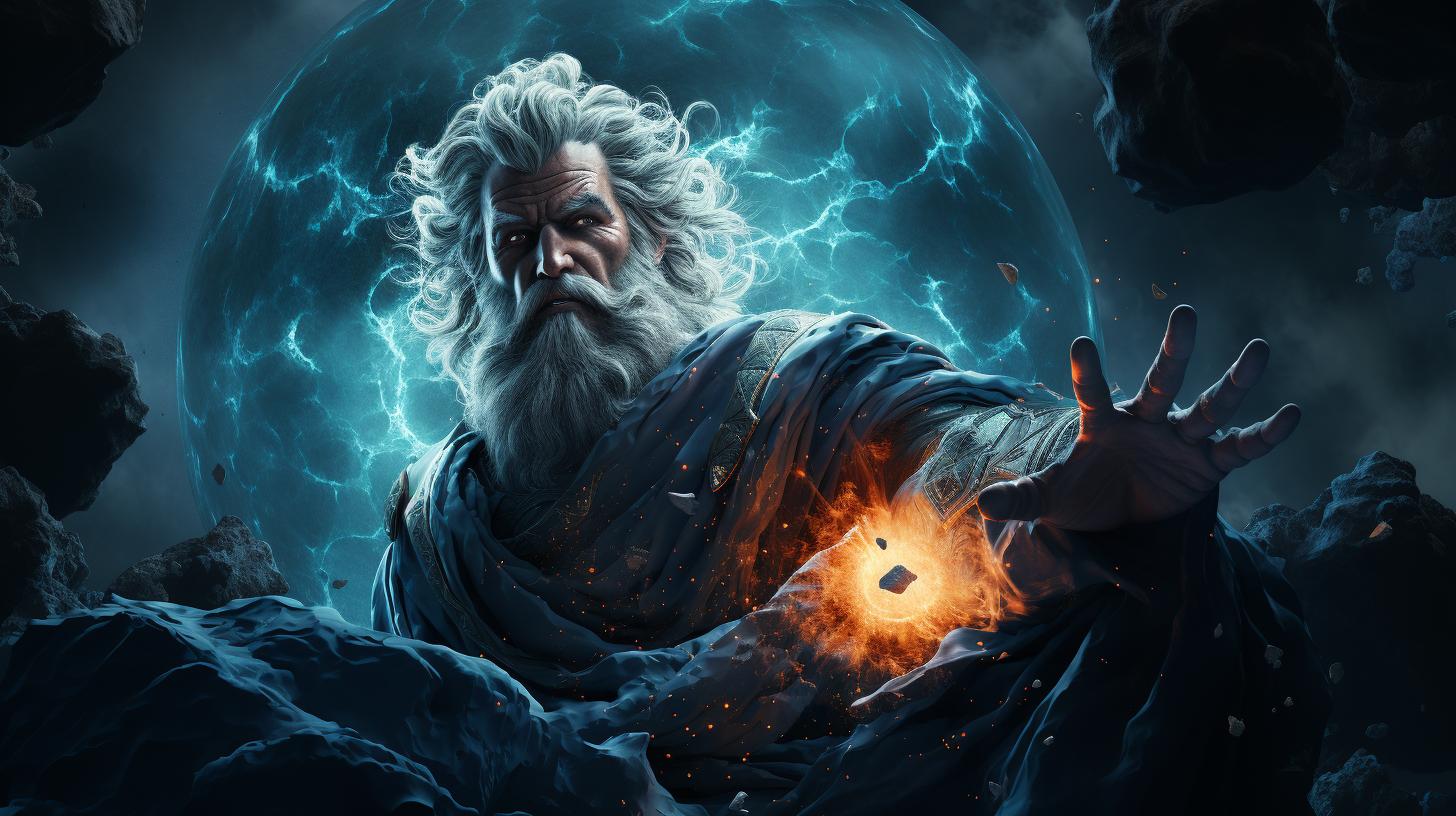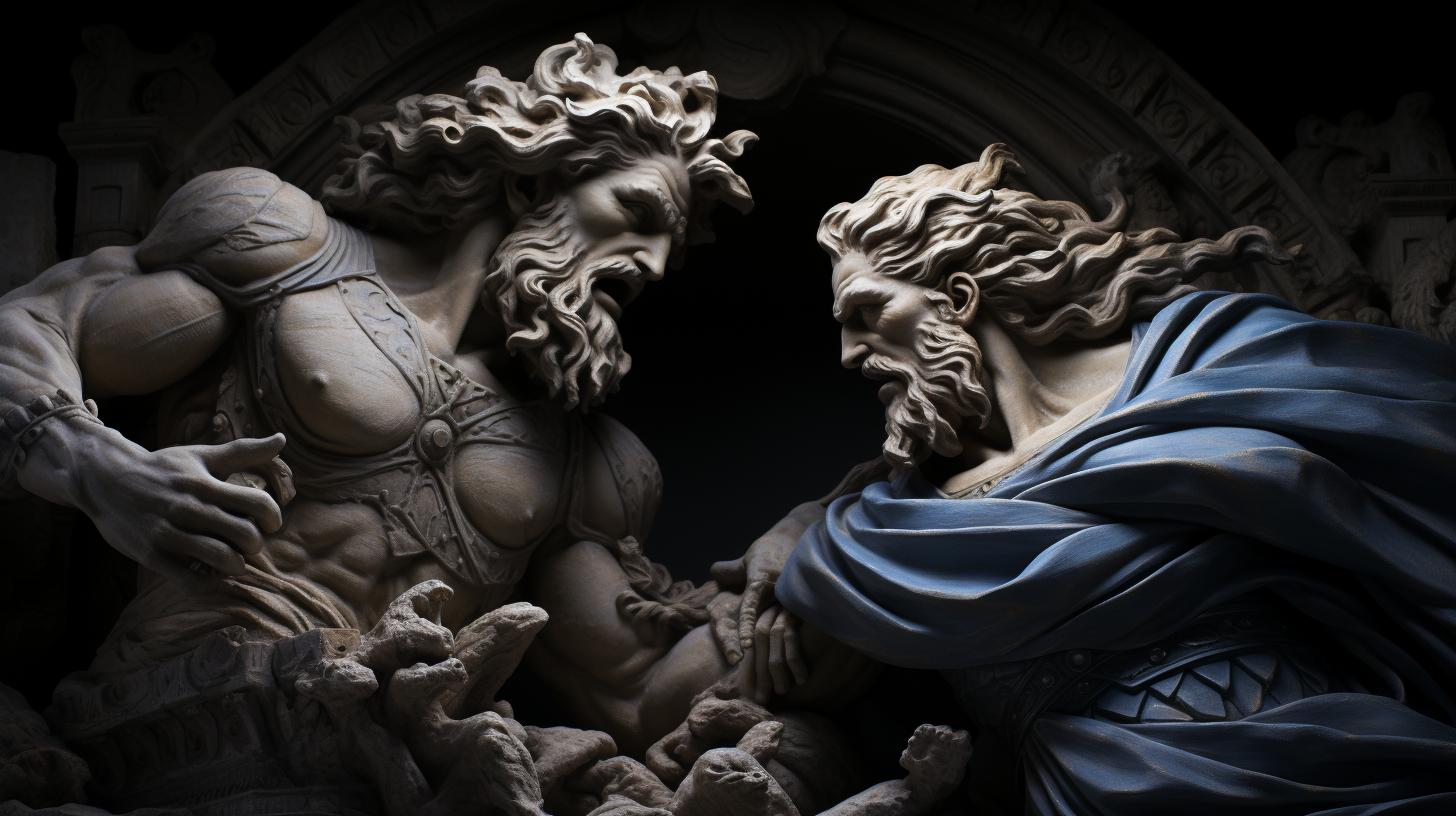Who is Electra in Greek Mythology: A Tale of Tragedy and Revenge

The story of Electra in Greek mythology revolves around betrayal and tragedy within her own family. As the daughter of Agamemnon and Clytemnestra, Electra’s life is marred by a curse that unfolds in a series of unfortunate events.
Her father’s absence during the Trojan War leads to her mother’s infidelity and the usurpation of the throne. The murder of Agamemnon upon his return further fuels Electra’s anger. Married off to a shepherd in an attempt to distance her from the palace, Electra’s despair grows as she mourns the loss of her presumed dead brother, Orestes.
These circumstances set the stage for their eventual reunion and their plot to avenge their father’s death by killing their mother and her lover. Electra’s overwhelming support and encouragement for Orestes during this task demonstrate her pivotal role.
Throughout the years, Electra has been portrayed in various theatrical productions and adaptations, making her a timeless character in Greek mythology.
The Story of Electra in Greek Mythology
Electra, a prominent figure in Greek mythology, was the daughter of Agamemnon and Clytemnestra. Her tragic tale unfolds amidst familial betrayal and vengeance. When Agamemnon left for the Trojan War, Clytemnestra took a lover and seized the throne, leaving Electra enraged by her mother’s treachery.
Upon Agamemnon’s return, he was mercilessly slain by Clytemnestra.
To keep Electra away from the palace, Clytemnestra married her off to a shepherd, further isolating and tormenting her. In some versions of the story, Electra believed her beloved brother Orestes to be dead, grieving for him in paintings where she is depicted holding a mourning urn.
Eventually, fate reunites Electra and Orestes, igniting a plan to avenge their father’s murder. They devise a scheme to kill Clytemnestra and her lover. While Orestes delivers the final blow in the theatrical adaptations, Electra serves as his unwavering support and encouragement throughout their quest for justice.
The story of Electra has captured the imagination of playwrights, directors, and artists throughout the ages, finding expression in various theatrical productions and artistic works. Its enduring significance and modern adaptations continue to showcase the timeless appeal of Electra’s tragic and vengeful journey.
Electra’s Family and Betrayal
Electra’s origins lie within the complex web of her family dynamics. As the daughter of Agamemnon and Clytemnestra, her life becomes entangled in a tragic tale of betrayal and power struggles.
When her father leaves for the Trojan War, her mother seizes the opportunity to take on a lover and usurp the throne, causing immense anger and resentment in Electra.
The ultimate betrayal occurs upon Agamemnon’s return, as Clytemnestra executes a plan to murder him, consolidating her power and solidifying the curse that shadows their family.
Electra, forced into a marriage with a shepherd to keep her at a distance from the palace, is consumed by grief, believing her brother Orestes to be dead.
Electra’s life is marked by the tension between her love for her father and her rage towards her mother.
The depth of her emotions drives her to reunite with Orestes, and together they hatch a plan for vengeance. Electra’s relentless support empowers Orestes to take the final blow, while she remains a guiding force in their pursuit of justice.
Electra’s Exile and Mourning
After her mother’s treacherous actions, Electra was forcibly separated from her rightful place in the palace and married off to a shepherd. This exile served as a means for Clitemnestra to weaken Electra’s resolve and distance her from any potential threats to her rule.
Stripped of her status and forced into a life far removed from the opulence she once knew, Electra’s days were filled with sorrow and mourning.
In some versions of the tale, Electra was led to believe that her beloved brother, Orestes, had met his demise.
This devastating news compounded her grief, and she was often depicted holding an urn in mourning for her brother. The loss of her family, coupled with her unjust exile, fueled Electra’s desire for revenge against her mother and her lover, who had wronged their family so profoundly.
Electra’s exile and mourning demonstrate the deep pain she endured throughout her life. Isolated from her rightful place, and mourning the loss of her brother, Electra’s emotional turmoil only intensified her burning need for justice and retribution.
Electra and Orestes Reunited
After years of separation and turmoil, Electra and her presumed dead brother, Orestes, finally reunite to embark on a quest for revenge against their mother and her lover. The siblings, bound by their shared desire to avenge their father’s murder, join forces and devise a plan to execute their ruthless plot.
United by their tragic past and driven by a thirst for justice, Electra becomes a pillar of support and encouragement for Orestes throughout their endeavor. Her unwavering loyalty and determination fuel their mission, as they prepare to take matters into their own hands and bring retribution upon the perpetrators of their family’s suffering.
The reunion of Electra and Orestes signifies a turning point in their lives, as they transform from victims of betrayal into formidable agents of vengeance. Their collaborative efforts highlight the strength of their bond and the undeniable influence they hold over each other.
In the works of Greek theater, it is often Orestes who delivers the final blow, but Electra’s unwavering support and guided them towards their ultimate goal. Together, they become the driving force behind their father’s justice, forever etching their names in the annals of Greek myth and tragedy.
Electra and Orestes’ Plan for Revenge
After their long-awaited reunion, Electra and Orestes devise a cunning plan to avenge their father’s murder. Fueled by their deep-rooted anger and desire for justice, they meticulously plot the downfall of their mother and her lover.
In secretive whispers, they discuss their strategy, considering every detail to ensure success. They know that their act of revenge won’t be without consequences, but they are willing to pay the price to honor their father’s memory.
Using their intimate knowledge of the palace, they exploit vulnerabilities and manipulate circumstances. They strike subtly, like shadows in the night, leaving no room for suspicion.
Electra acts as Orestes’ steadfast ally, encouraging and supporting him at every turn.
She provides emotional strength and unwavering resolve, urging him not to falter in their quest for justice. With each step closer to their goal, their determination grows stronger.
Finally, the moment arrives – it is time to deliver the fatal blow.
Orestes takes the decisive action needed to fulfill their revenge, but it is Electra’s unwavering support that fuels his resolve. Together, they execute their plan with a combination of righteous fury and calculated precision.
Their act of vengeance forever changes their lives, but the weight of their father’s murder is lifted. In the aftermath, Electra and Orestes find solace in the justice they have achieved, though the haunting memories will always linger.
Through their unwavering unity and shared determination, Electra and Orestes stand as a testament to the power of loyalty and the lengths one will go to seek retribution.
Electra’s Role in the Tragedies
In the tragedies revolving around Electra, her role takes on a crucial significance.
While her brother Orestes fulfills the ultimate act of revenge, it is Electra who plays a vital part in orchestrating the plan. Her unwavering support and encouragement propel Orestes forward, providing him with the strength and determination to carry out the deed.
Electra’s fierce loyalty to her father’s memory and her burning desire for justice form the very essence of her character. She serves as a constant reminder of the family’s tragic history, their betrayal, and the need for retribution.
The portrayal of Electra in various theatrical productions highlights her complex emotions and the intensity of her desires. Her vengeful spirit and relentless pursuit of justice make her a captivating figure on stage.
Directors and actors have embraced Electra’s multifaceted personality, showcasing her internal struggles and unwavering resolve. Through her raw emotions and unwavering determination, Electra’s role in the tragedies becomes a catalyst for the fateful events that unfold.
Electra’s Representation in Theatre and Film
Electra’s compelling story and complex character have captivated audiences for centuries, leading to numerous theatrical adaptations and portrayals in film. Her tragic tale of revenge and familial betrayal resonates with audiences, ensuring her enduring presence in the world of performing arts.
- Powerful Performances: Electra’s role has been brought to life by talented actors who have skillfully portrayed the depth of her emotions and inner turmoil. From ancient Greek drama to modern stage productions, actresses have taken on the challenge of capturing Electra’s rage, grief, and unwavering determination.
- Diverse Interpretations: Each representation of Electra on stage or in film brings a unique perspective to the character.
Directors and playwrights have approached her story from different angles, shedding new light on her motivations and the consequences of her actions.
- Influential Adaptations: Electra’s impact extends beyond the stage. Filmmakers have taken inspiration from her tale, creating cinematic adaptations that bring her story to a wider audience.
These films explore the themes of revenge, justice, and the complexities of familial relationships.
Electra’s presence in both theater and film showcases the timeless appeal of Greek mythology and its ability to resonate with contemporary audiences.
Through these artistic mediums, Electra’s story continues to be reimagined, keeping her legacy alive and ensuring her place in cultural discussions.
Electra in Modern Adaptations
Throughout the years, Electra’s compelling story has served as a source of inspiration for various modern adaptations in different art forms such as theatre, film, and literature.
In the realm of theatre, numerous playwrights have revisited Electra’s tale, infusing it with contemporary interpretations and exploring themes of revenge, justice, and familial relationships.
These adaptations often emphasize Electra’s resilience and determination in seeking retribution for her father’s murder.
On the silver screen, filmmakers have offered their own cinematic adaptations of Electra’s story, showcasing her complex character and the turmoil she experiences.
These films capture the essence of her internal conflict, blending it with visually stunning cinematography and powerful performances, bringing her story to life for modern audiences.
Moreover, modern authors have not shied away from incorporating Electra’s narrative into their works of literature.
Through their reinterpretations, they shed new light on her character, exploring the psychological depths of her motivations and the consequences of her actions.
Electra’s enduring presence in these contemporary adaptations reflects the timeless appeal of her story, resonating with audiences in new and innovative ways.
As artists continue to reimagine and retell her tale, Electra’s influence in popular culture remains strong, ensuring that her legend stands the test of time.




















